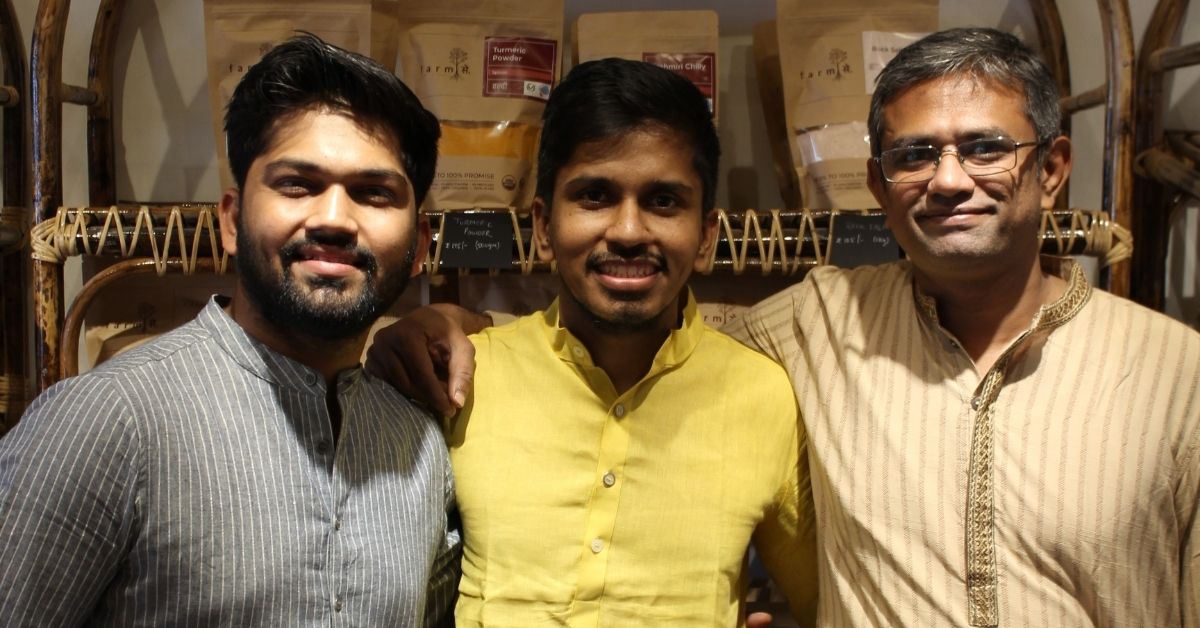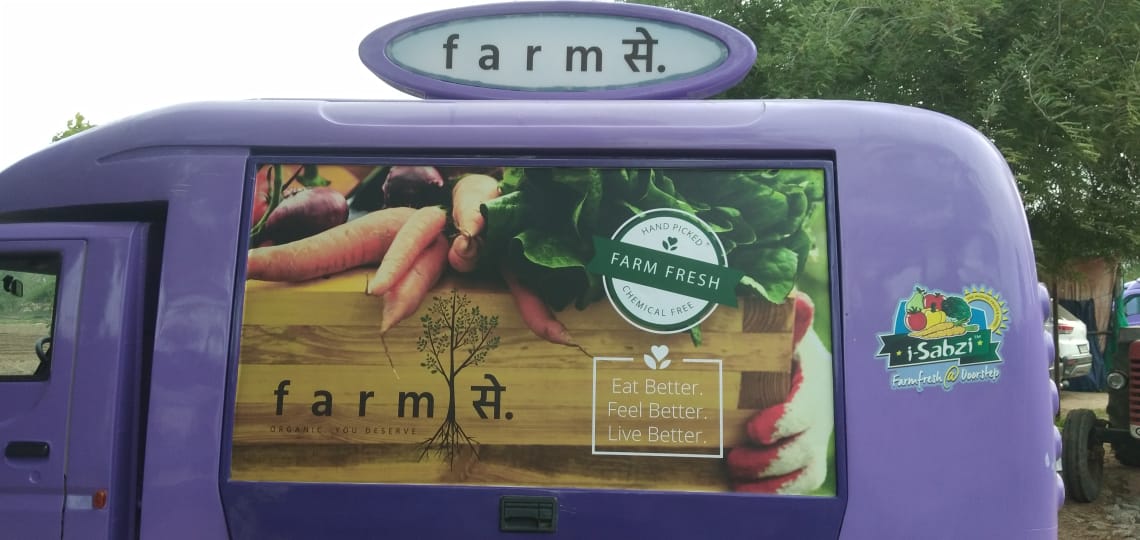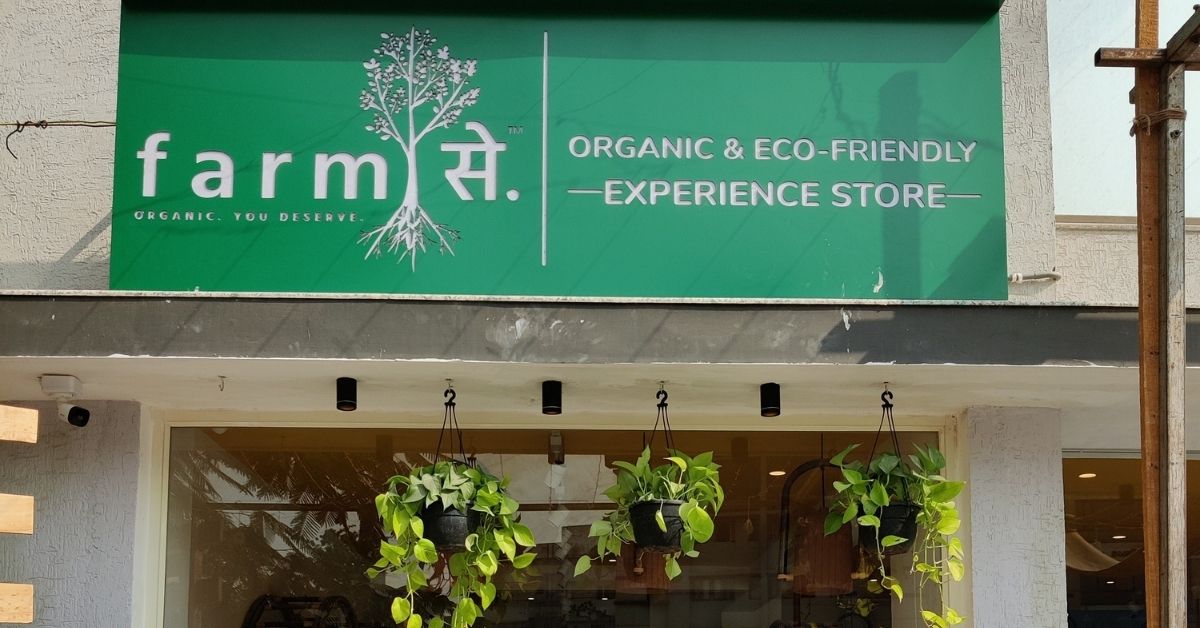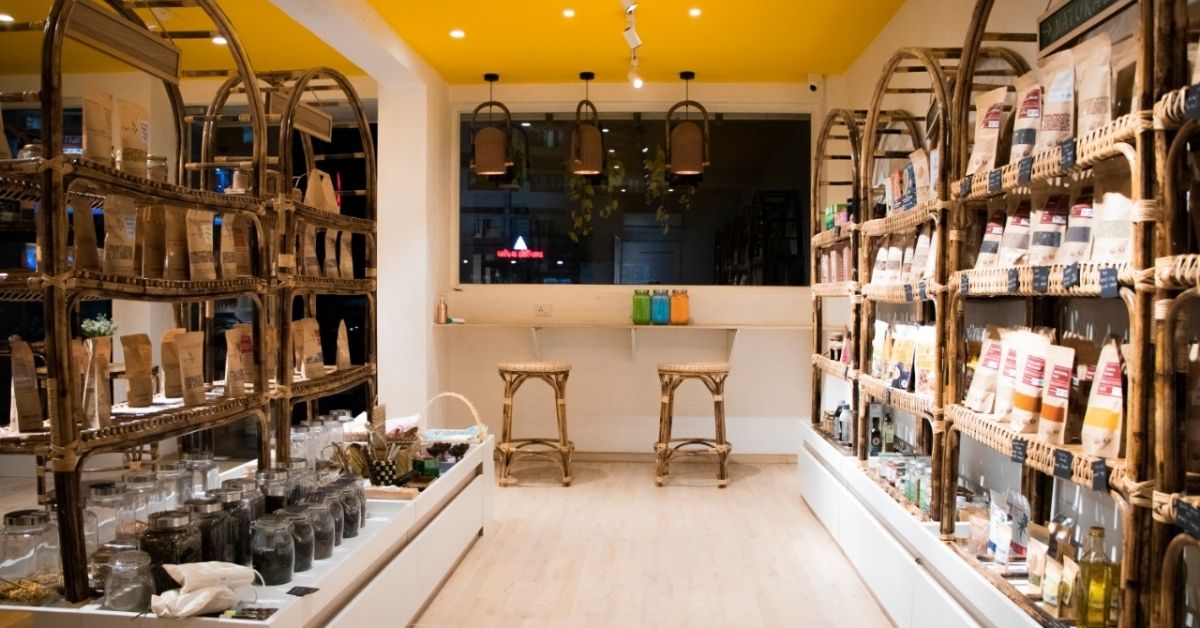For Yash Mehta, Rajan Patel and Raj Jain, it was more about promoting an organic lifestyle than selling just organic food. By the time they launched their organisation, Shudh Jeevan Pvt Limited in 2017, India was witnessing a rise in organic brands.
The concept of farm-to-fork was penetrating metro cities like Delhi, Mumbai, Gurugram and even Ahmedabad, where the trio is based. Not wanting to be trapped in yet another rat race, they designed their model differently.
Called ‘Farmse to Farmpe’, the initiative aimed at inviting the customers and their children directly to farms to observe the farming process. They wanted their customers to meet the 50 farmers that would be growing the food.
This not only increased the trust of the consumers who were now sure they were getting authentic organic produce but some families also observed children were not wasting food after seeing the difficult farming process.
In 2018, they launched ‘Farm Se on Wheels’ to sell organic vegetables and fruits across the cities in order to assure people of the quality.
The impact was also reflected in their growing customers and thereby their revenue.
“This initiative was our biggest learning curve,” says Yash (26), “Consumerism is omnipresent in our lives. At some point, every consumer feels manipulated or cheated. Our model addressed that challenge. For our next projects, we adopted the same rule.”

The organisation has other segments like a zero-waste store and farms on wheels that aims at promoting an organic lifestyle.
“Our goal is to provide access to clean, healthy and organic lifestyle options. We want to bring a lifestyle change that has been lost. We realised that organic farming is less expensive but due to the wastage, lower production and an expensive, customised supply chain it is sold at higher prices,” says Rajan (38).
Keeping these issues in mind, the organisation has kept the prices of vegetables and fruits almost similar to the non-organic produce. For example, the price of one dozen mangoes at the beginning of the season is Rs 1,600, which is approximately higher by Rs 150-200 than the market price.
Despite the affordable prices, the founders have been able to increase their profits by three times. Their revenue model comprises retailing online and offline, B2B sales to over 30 stores in Ahmedabad and few other cities and corporate and festival gifting.

“Our supplies of seasonal produce like Mangoes, Jackfruits, Custard Apple, etc also form a large chunk of revenue and are shipped pan india via our partners. Our revenues increased from Rs 40,00,000 FY 2019-20 to Rs 1.25 crore in FY 20-21. We are targeting to cross 2.5 cr in the next quarter,” adds Rajan.
Interestingly, none of the founders have an agricultural background. While Yash and Raj (26) are childhood friends who have CA degrees, Rajan is an MBA grad. After working in MNCs like KPMG and Grant Thorton, they decided to leave their jobs.
“Yash and I grew up in Marwar, a small city in Rajasthan where all our food was free of harmful chemicals. We missed that in the city. When we were looking for some organic options, we came across Rajan who was running ‘Greenobar’ to sell organic products. When we approached him, our ideas matched. That’s how our venture was started,” says Raj.
What a zero waste store entails

When it came to choosing an offline store for customers based in Ahmedabad, the founders wanted something that would mirror the ideology of their organisation. They came up with BYOC (bring your own container) and a unique shopping policy, ‘pay by waste’.
The idea was simple. Customers could use trash as cash. The store accepts paper and plastic waste as a payment method for shopping.
“It was a catalyst for people, especially for kids who started to collect waste. If you deposit five kilos of waste you can purchase an item worth Rs 40. The concept became popular, and within six months we collected over 180 kilos of waste from more than a 100 children. However, due to the pandemic we saw a downfall but now it is picking up again in all our three stores,” says Yash.
The architecture and interior of the store is also eco-friendly.

The founders have used bamboo instead of wood for racks and all the lamps are sourced from Kumbharwada, a place traditionally famous for clay items. The walls are covered in Lippan, a combination of mud and mirror work. This is an ancient craft of Kutch that uses locally available construction materials like clay and camel dung that keep the interiors cool.
Apart from fruits and vegetables, the store also offers pickles and mouthwashes. Some of the value added products like pickles are made by homemakers under their initiative ‘Ghar Se’.
“We came to know that a housewife from Ahmedabad makes mango pickle at home, which is very much liked by our customers. Similarly, many other products are also prepared by people at home,” adds Rajan.
Meanwhile the online portal offers over 300 organic and eco-friendly products including cosmetics, dry fruits, baby food and spices.
“I have been purchasing jaggery powder from Farmse for two years now and their taste and quality is very different from what is available in the market. I liked it so much that even after moving out of the city, I continued ordering. I have even done a farm visit where they demonstrated the methods and I have ordered the fresh produce several times,” Shelly Jain, one of their customers, tells The Better India.
Seeing the overwhelming response for their zero-waste store, the founders are planning to launch such stores in four to six cities across India over the next two to three years. They will also launch an organic juice bar where customers can make their own through pedalling a cycle.
You can reach them here.
(Edited by Yoshita Rao)
No comments:
Post a Comment